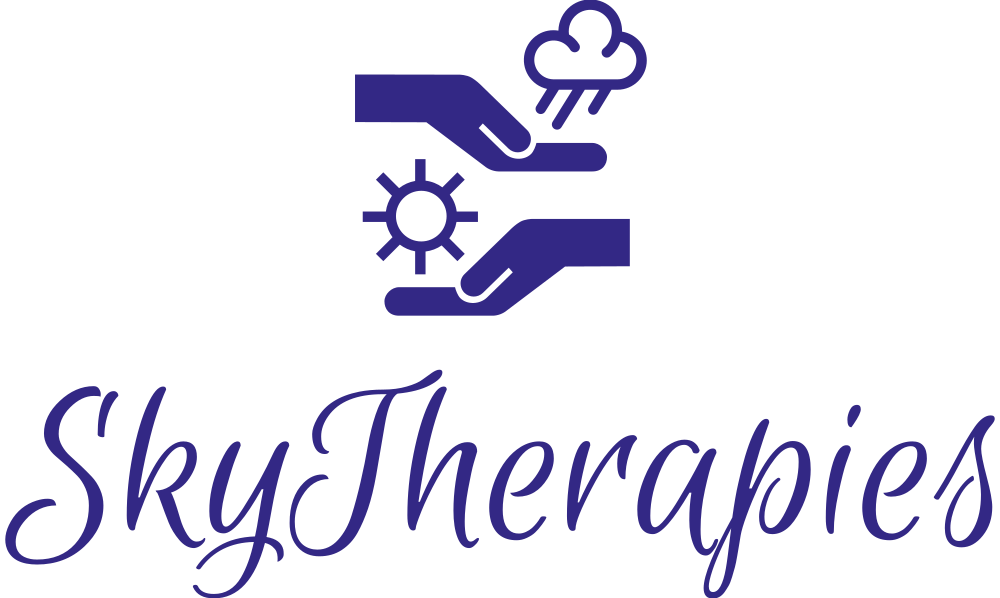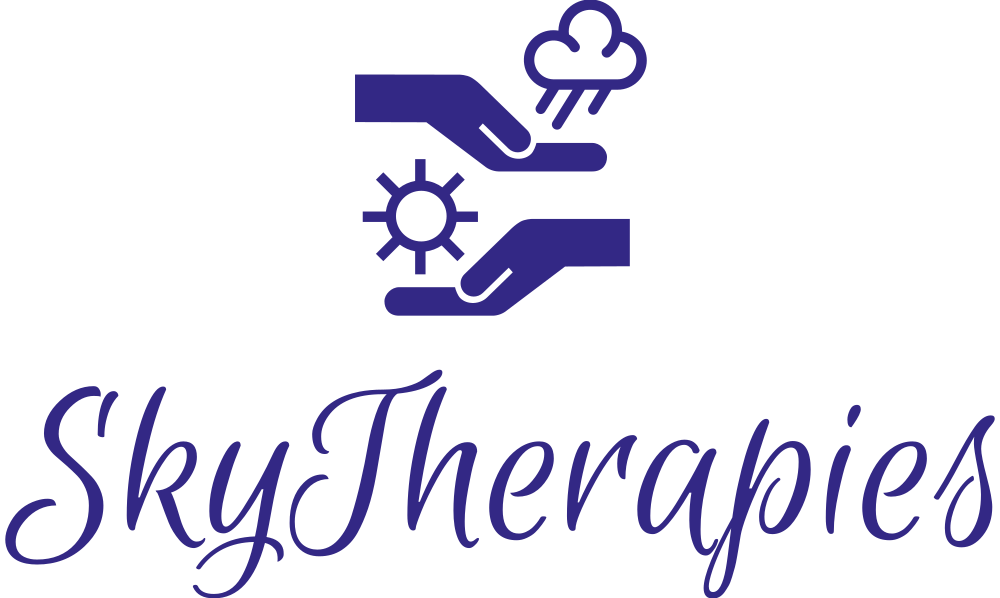Experiencing trauma can be life-altering. It can leave us feeling lost, disconnected, and unsure of how to move forward. The journey from surviving trauma to thriving in life is not an easy one, but it is possible. With the right support and the commitment to healing, individuals can rebuild their lives, create meaning, and ultimately thrive beyond their past pain.
At Sky Therapies, we believe that healing is not just about surviving—it’s about rediscovering your strength, embracing a life of purpose, and creating a future filled with fulfillment. In this blog post, we’ll explore how trauma affects us, the transformative power of therapy, and the steps you can take to move from survival to thriving.
Understanding the Impact of Trauma
Trauma affects every aspect of our being—emotionally, physically, and mentally. Whether it’s the result of childhood abuse, an unexpected accident, or a life-changing event like the loss of a loved one, trauma can leave deep emotional scars that impact the way we see the world and interact with others.
Some of the common ways trauma manifests include:
- Emotional numbness or disconnection: Trauma can cause individuals to feel detached or distant from others and even themselves. It may be hard to connect with your emotions or feel joy.
- Intrusive thoughts or flashbacks: Memories of traumatic events can intrude into daily life, making it difficult to focus or feel at peace.
- Heightened anxiety and fear: Trauma often leads to anxiety, hypervigilance, or a constant state of alertness. You may find yourself overly cautious or afraid of situations that remind you of your trauma.
- Physical health issues: Trauma can manifest in the body, leading to chronic pain, fatigue, digestive issues, or even autoimmune conditions.
These effects can make it hard to move forward, leaving you feeling stuck and unsure of how to heal. But it’s essential to know that trauma does not define you—your ability to heal and create a meaningful life is within reach.
The Path to Healing: Moving Beyond Survival
Healing from trauma is not a linear journey, and everyone’s path will look different. However, there are several steps you can take to begin moving beyond survival and building a life of purpose and fulfillment. Therapy is a crucial part of this process, offering the tools, support, and guidance needed to heal and thrive.
-
Acknowledge and Process the Trauma
One of the first steps in healing from trauma is acknowledging the impact it has had on your life. This can be difficult, especially if the trauma occurred in the past, but confronting it is a necessary step toward healing. Trauma often becomes buried deep within, affecting the way you interact with the world. By acknowledging it, you begin the process of reclaiming control over your life.
Therapies like EMDR (Eye Movement Desensitization and Reprocessing) and DBR (Deep Brain Reorienting) are particularly effective for processing trauma. These therapies help reprocess painful memories and release the emotional charge associated with them, enabling individuals to gain a new perspective and emotional freedom.- EMDR uses bilateral stimulation (such as eye movements) to help clients access and reprocess traumatic memories, reducing the emotional charge they carry.
- DBR works by targeting the brain’s stress response system, helping to reorient neural pathways and break free from the cycle of trauma. It allows individuals to release deep-seated emotional blocks, leading to healing and emotional restoration.
-
Embrace Healing Through Self-Compassion
Healing from trauma requires a shift in the way we relate to ourselves. Often, trauma survivors struggle with feelings of guilt, shame, or self-blame. These feelings can prevent individuals from moving forward, keeping them stuck in the past.
Learning to embrace self-compassion is key to healing. It involves being kind to yourself, acknowledging your pain, and treating yourself with the same understanding and care that you would offer a loved one. Therapy can help you develop self-compassion, guiding you to challenge negative self-beliefs and replace them with healthier, more supportive thoughts. -
Rebuild a Sense of Safety and Trust
Trauma often shatters our sense of safety and trust in the world around us. Rebuilding these feelings takes time, but it’s possible. Through therapy, individuals can learn to reestablish a sense of safety in their own bodies and in their relationships.
Trauma-Informed Therapy is designed to create a safe, supportive environment for individuals to process their pain without feeling overwhelmed. This therapeutic approach prioritizes trust, respect, and sensitivity, helping you feel safe enough to explore your feelings and experiences.
At Sky Therapies, we specialize in trauma-informed care to ensure that every client feels heard, validated, and supported. Whether through Brainspotting, EMDR, or DBR, we provide a healing space where safety and trust are prioritized. -
Reframe Your Story: Moving from Surviving to Thriving
A key part of healing is rewriting the narrative of your life. Trauma can lead individuals to see themselves as victims, but in therapy, you can learn to shift your perspective. Instead of identifying solely with your trauma, therapy helps you reclaim your identity and strengths.
Through therapy, you can begin to see how you’ve survived, how you’ve grown, and how you’ve developed resilience despite the challenges you’ve faced. With DBR, for example, we can work together to reframe limiting beliefs and rewire your brain’s response to negative patterns. Over time, this leads to greater emotional freedom and personal empowerment. -
Set New Goals and Cultivate Meaning
The path to thriving involves more than just healing from trauma—it’s about rebuilding a meaningful life. Therapy can support you in setting new goals, creating a sense of purpose, and cultivating fulfillment.
Exploring activities or passions that bring joy, establishing new routines, and reconnecting with loved ones are important aspects of moving forward. Therapy can help you gain clarity on what matters most to you, supporting you in creating a vision for the future. -
Embrace Ongoing Growth and Resilience
Healing from trauma is not an event—it’s an ongoing process. Even after processing the pain of the past, it’s essential to embrace a mindset of growth and resilience. The more you learn to cope with life’s challenges and trust in your ability to overcome them, the more resilient you become.
Therapy, particularly DBR and EMDR, can help you develop long-term emotional resilience. These therapies help strengthen your ability to cope with stress, regulate your emotions, and navigate life’s ups and downs with greater ease.
Moving from Surviving to Thriving at Sky Therapies
At Sky Therapies, we believe in your potential for healing, growth, and transformation. We are committed to walking with you through your journey from surviving trauma to thriving in life. Through our specialized therapies like EMDR, DBR, and Trauma-Informed Care, we can help you break free from the past and create a future filled with purpose, joy, and fulfillment.
If you’re ready to take the next step toward healing and personal transformation, we invite you to reach out to us at Sky Therapies. Our team of compassionate professionals is here to support you in building a life of meaning and resilience. Let’s work together to create the future you deserve.





